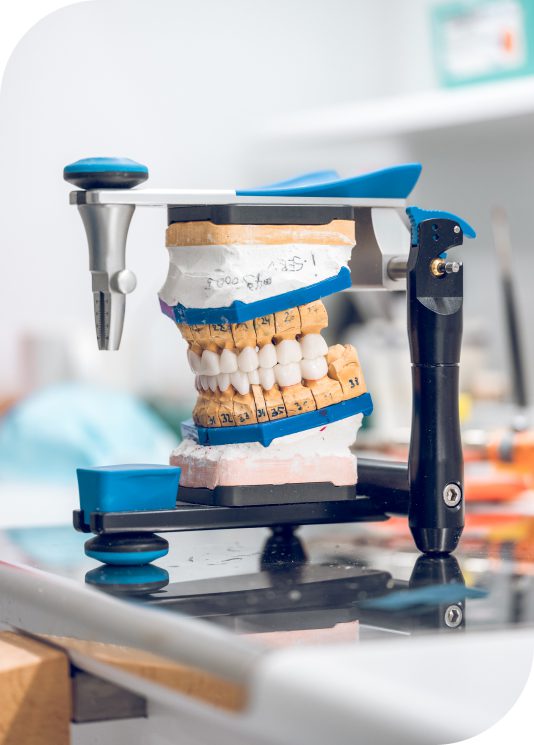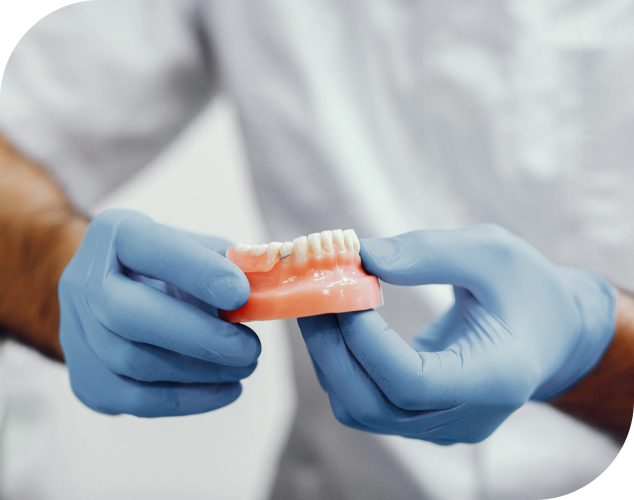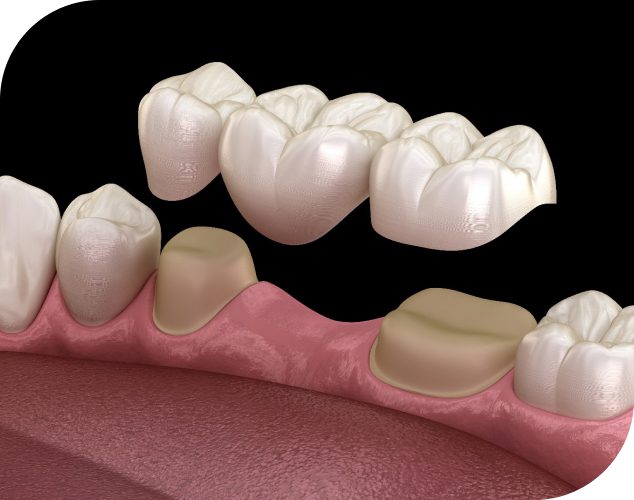A bridge can also be used to replace more than one missing tooth, as long the bridge has surrounding teeth for support.
A bridge can be made of gold, metals, porcelain, ceramic or a combination. You and our dentist can decide which kind is the best for you. As we are a biomimetic dentistry, we do not condone the use of metals in the mouth. For front teeth, porcelain or ceramic bridges can be matched to the color of your real teeth.


The surrounding/supporting teeth for your bridge can also be dental implants, which are full crowns attached to metal posts (root) that look like real teeth.
Bridges make your smile complete, give you confidence and fill in the gap left by a missing tooth. If the gap is unoccupied, then the remaining teeth around the gap will eventually shift to fill it in and create a bad bite. This can lead to gum disease and temporomandibular joint (TMJ).
When one of your teeth is lost that displays at the time of smiling, it can be sensitively traumatic.
Though, various advanced technologies have been developed that are able to replace the teeth to look and feel just like the real one.
It stands for false teeth known as pontics that are fused between two porcelain crowns to fill in the space left by missing teeth.
They can’t be taken out of the mouth as you might perform with partial dentures. Bridges are able to diminish the risk of gum disease and are helpful in correcting some bite issues. It is also helpful in improving speech.
Bridges need a commitment to serious oral hygiene but will last many years.

If someone contains missing teeth and performs good oral hygiene practices, they need to discuss this condition with their dentist.
If spaces are left unfilled, they can create the surrounding teeth to float out of position.
In addition, spaces from missing teeth are able to cause the other teeth, as well as gums, to become far more vulnerable to gum disease and tooth decay.
